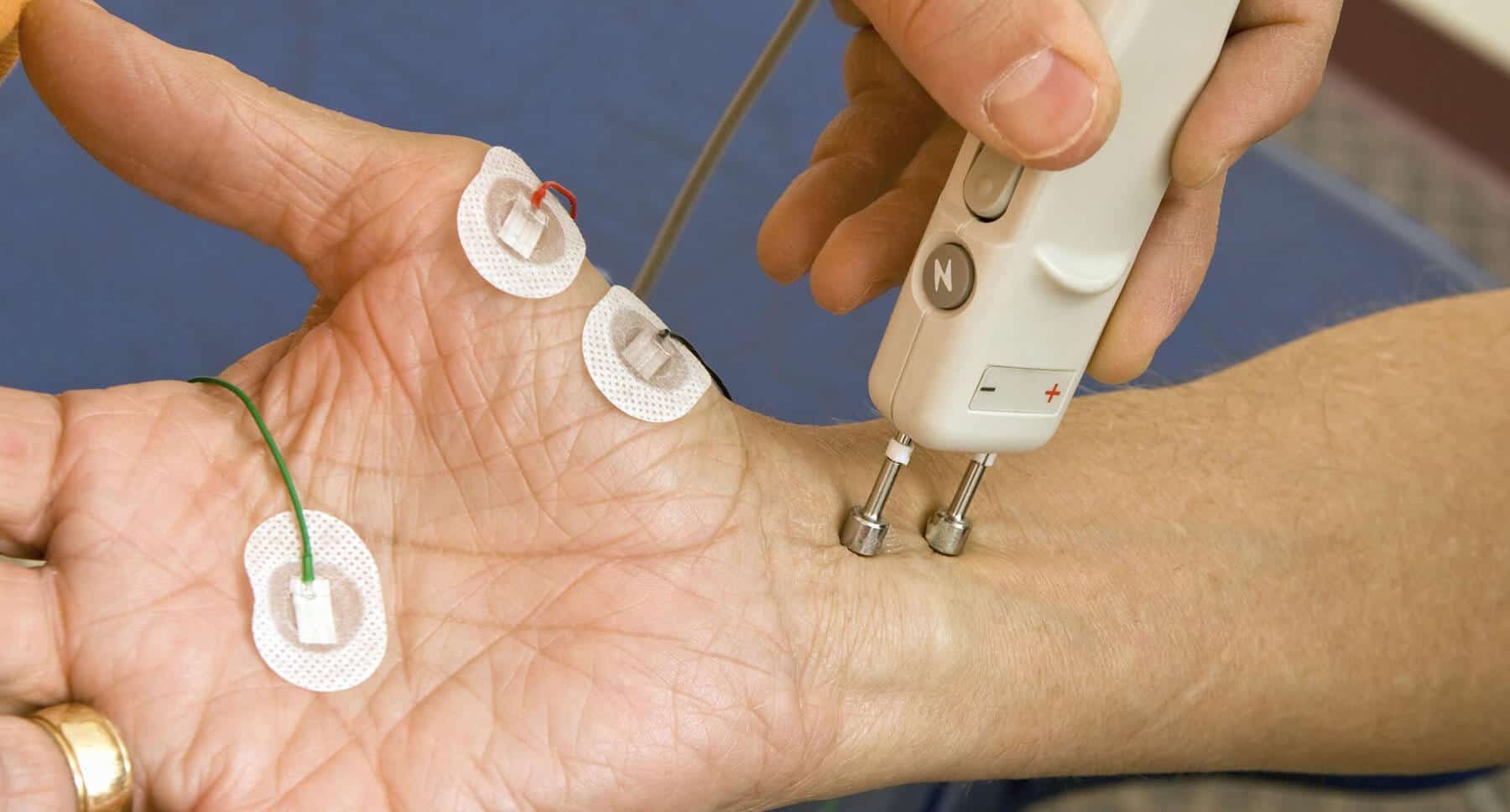
Electromyography (EMG)
Electromyography (EMG) and nerve conduction studies are an extension of the physical examination. They can be useful in aiding in the diagnosis of peripheral nerve and muscle problems. This can include peripheral neuropathies, entrapment neuropathies, radiculopathies, and muscle disorders. Neurologists advise them in case patient has tingling, paresthesias, numbness, weakness, muscle pain, radiating pain. They may be advised when following are suspected:
- Guillain-Barré syndrome
- Carpel Tunnel Syndrome and other entrapment neuropathies
- Peripheral neuropathy
- Mononeuropathy Multiplex
- Motor Neuron Disease/ALS
- PIVD/Sciatica/Radiculopathy
- Myopathy – polymyositis/dermatomyositis
- Muscular Dystrophy
EMG, involves testing the electrical activity of muscles recorded as graph. A needle is inserted in the muscle and patient may be asked to contract the muscle as required.
How the test will feel?
There may be some discomfort with insertion of the needle electrodes (similar to an intramuscular injection). Afterward, the muscle may feel tender or bruised for a few days.
EMG Risks
Disposable needles are used so there is no risk of infection.
A very low risk of pneumothorax in case of study of muscles of chest and back has been noted.
Precautions with EMG
- Dress in clothes that permit access to the area to be tested or that are easily removed. You may need to roll your sleeves up past your elbow and/or your pant legs up past your knee.
- Come with your skin clean and do not apply lotions or other products on your skin.
- Eat, sleep and take medications as usual, unless instructed otherwise by Neurologist.
- Inform if using a blood thinners, if you are suffering from bleeding disorder/hemophilia, have a skin infection.
Nerve Conduction Study (NCS)
A nerve conduction study (NCS) — also called a nerve conduction velocity (NCV) test.
Nerve conduction studies (NCS) give doctors information about how well and how fast the nerves in your body send electrical impulses. This test can be used to check for various different types of problems with the peripheral nervous system. The nerve is electrically stimulated, and the electrical impulse 'downstream' from the stimulus is measured. This is usually done with surface patch electrodes.
NCV is helpful in determining the existence, type, and extent of nerve damage. NCS allows the Neurologist to differentiate between axonopathy (injury to the nerve fiber) and myelinopathy (injury to the myelin sheath the protective covering surrounding the nerve fiber).
No known risk associated with the test. Precaution advised in patients with pacemaker, Implantable Cardiac Defibrilator (ICD) and Deep Brain Stimulation(DBS).
Precautions
- Dress in clothes that permit access to the area to be tested or that are easily removed. You may need to roll your sleeves up past your elbow and/or your pant legs up past your knee.
- Come with your skin clean and do not apply lotions or other products on your skin.
- Eat, sleep and take medications as usual, unless instructed otherwise by Neurologist.
- Inform if using a Pacemaker/ICD/DBS.
EMG, NCS/NCV RNS Test in Ahmedabad - Setu Neurology Clinic
Searching for EMG, NCS, RNS Test in Ahmedabad? Book your appointment with Dr. Vishal Jogi. SETU Neurology Clinic offerst the best EMG, NCS & RNS test.
All Services
Opening Hours
| Monday – Saturday | 11:30 AM - 2:00 PM 5:30 PM - 8:00 PM |
| Sunday | Closed |
| Emergency | 24x7 |
Quick Contact
- Address Setu Neurology Clinic, 703, Satya One Complex, Near Helmet Circle Opposite Manav Mandir / R3 Mall, Drive In Rd, Memnagar, Ahmedabad, Gujarat 380 052.
- Email vishaljogi@yahoo.com
- Phone +91 84698 65577





